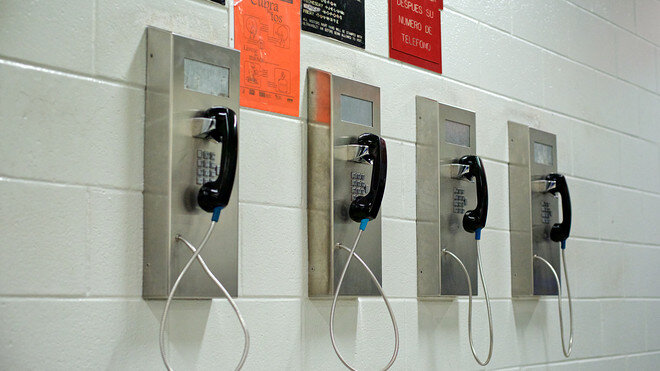The High Costs of Phone Calls from Prison
In response to COVID-19, in April 2020, the Federal Bureau of Prisons declared that telephone and video calls would be free of charge to federal prison inmates. Though this provision marks a monumental step in addressing socioeconomic inequality in the U.S. justice system, it fails to grant the same privileges to the nearly 2 million people in state and local prisons and over 120,000 people in private prisons, leaving many individuals and families in isolation during this global pandemic.
The billion-dollar prison phone call industry exploits one of our country’s most vulnerable populations by drastically overcharging inmates, with a fifteen-minute phone call costing as high as $24.82, as reported by the Prison Policy Initiative. This practice particularly targets families with low incomes, as the Brookings Institution finds that the median income of employed men prior to incarceration was $6,250. In many cases, this challenges families that are barely living from paycheck-to-paycheck to face the harsh dilemma of whether to use funds to connect with loved ones or buy essential goods. Moreover, in the context of this pandemic, with limited social contact and stay-at-home orders across the U.S., many families are unable to visit their loved ones in-person, making phone and video calls their only options. However, an inability to afford these crucial calls further isolates the population incarcerated, which can have dire effects on individuals’ mental health.
In a meta-analysis on the effects of social isolation on mortality, researchers found that loneliness and isolation had direct health risks that were equivalent to daily cigarette usage or alcohol abuse. Similarly, researchers from Cornell University and the University of Chicago also found a link between isolation and other mental and physiological risk factors such as obesity and depressive symptoms. As many prison cells typically hold only one to two people, and as prisons continue to take quarantine measures in response to the pandemic, people experiencing incarceration are facing more seclusion. By cutting prisoners off from their families and loved ones, exorbitant phone call prices only exacerbate mental health risks and can have long-term effects on prisoners’ physical health. Over time, this may also impact U.S. recidivism rates, as research shows that inmates experiencing severe mental illness had a higher chance of returning to incarceration.
The coronavirus pandemic has transformed nearly every aspect of society, and its impact on inequality in the prison system is no different. In this challenging time, we need to ensure our country’s most vulnerable populations are receiving the resources they need. This starts with giving them the right to speak with their families, to virtually connect with others. Equal Justice Under Law believes that access should not be barred by poverty, and this is one of many issues where money is a requirement for well-being. We are against discriminatory wealth-based means of access.

